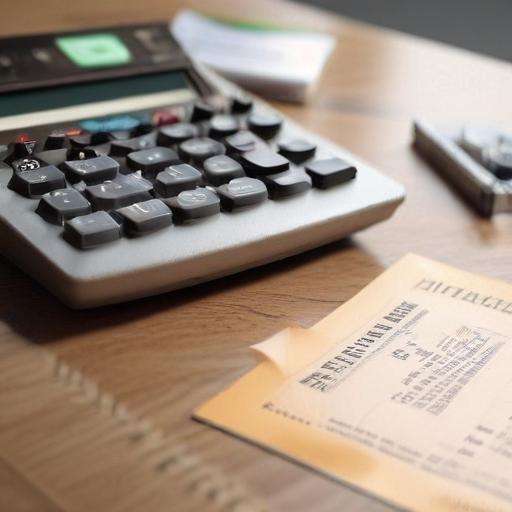Trump tariff rebate talk, the American Worker Rebate Act, and inflation relief checks: what to know about rebates and tax refunds in 2025
Summary: There is no official confirmation of a fourth stimulus check. The president has floated a tariff-funded rebate idea, and a Republican senator has introduced a related bill. Meanwhile, several states have issued or are issuing inflation relief or rebate checks. For federal refunds, taxpayers should rely on IRS processing timelines and official tools to track refunds.
What’s new and why it matters
– In late July 2025, President Donald Trump floated the idea of a tariff rebate check funded by revenue from new tariffs. He described it as potential money returned to taxpayers, while noting the broader goal of paying down debt.
– Missouri Senator Josh Hawley introduced the American Worker Rebate Act of 2025, which would push rebate checks to Americans. As with the tariff idea, there has been no official, enacted policy or IRS implementation as of now.
– The discussion follows ongoing questions about a possible fourth stimulus check, but Congress and the IRS have not confirmed any new nationwide payments. Past stimulus programs distributed up to $1,400 per eligible adult and dependent, with deadlines for claiming Recovery Rebate Credits now past.
What is a rebate versus a stimulus check
– Rebate: a partial refund of a purchase price tied to meeting certain conditions or programs, usually issued after purchase rather than at the point of sale.
– Stimulus check: a direct payment intended to boost spending and support the economy, issued to eligible individuals or families.
What has happened with stimulus checks so far
– The first stimulus, issued in 2020, provided up to $1,200 for individuals and $2,400 for married couples, plus $500 per qualifying child.
– The second stimulus offered up to $600 per individual and $1,200 for married couples, with $600 per qualifying child.
– The third stimulus delivered $1,400 per eligible adult and an additional $1,400 for each qualifying dependent in some cases.
– The deadline to claim the 2021 Recovery Rebate Credit was April 15, 2025. Unclaimed payments generally revert to the U.S. Treasury.
Where inflation relief checks are happening now
– Several states have issued or are issuing one-time inflation relief or rebate checks, with varying eligibility rules and amounts.
– New York has issued relief payments tied to residents’ circumstances and tax situations.
– Pennsylvania, Georgia, and Colorado have announced inflation-related rebates or refunds for property owners or taxpayers, each with its own criteria.
– If you’re unsure about eligibility, check your state’s official tax or treasury agency website for the latest guidance and application details.
Tracking federal tax refunds
– If you filed electronically and included banking information, a direct deposit refund typically arrives within about two to three weeks after the IRS accepts your return.
– If you filed on paper or did not include banking information, refunds can take longer (weeks to months, depending on processing and mailing times).
– The IRS tool Where’s My Refund lets you track the status of your refund after the return is accepted. You’ll need your Social Security number, filing status, and the exact refund amount.
– If you prefer, you can call the IRS at 1-800-829-1040 (note: not 800-829-1954; confirm the correct number on official IRS materials).
Tracking state refunds
– Most states offer online portals to check state tax refund status. Examples include portals run by Delaware, Pennsylvania, and New Jersey, among others. Check your state’s official tax or treasury site for the latest tracking options and expected timelines.
What to watch next
– Official announcements matter: until Congress or the IRS formally confirms a new nationwide payment, treat any reports of a fourth stimulus or tariff rebate as speculative.
– If you’re waiting on a refund or a state rebate, use official portals and verify eligibility through trusted state websites.
– Be cautious of misinformation or scams promising guaranteed rebates or refunds. Always rely on official government channels for critical financial information.
Bottom line
– The idea of a tariff-funded rebate and the American Worker Rebate Act are under discussion but not yet enacted. For most taxpayers, the immediate path to relief remains through state inflation checks where offered and through timely filing of 2021 tax returns to claim any eligible Recovery Rebate Credit, if applicable. For federal refunds, rely on IRS processing times and official tools to monitor status.
Additional notes and value for readers
– If you’ve missed stimulus-related deadlines, be aware that only the 2021 Recovery Rebate Credit had a deadline tied to tax filing; other programs’ deadlines depend on state programs or future legislation.
– For readers concerned about potential scams, never share sensitive personal information outside official portals, and beware unsolicited offers claiming guaranteed rebates or rapid-deposit schemes tied to tariffs or new legislation.
Summary: With ongoing talk of tariff-funded rebates and new legislative proposals, major nationwide stimulus payments remain unconfirmed. States continue to deploy inflation relief in various forms, while federal refunds continue to flow through established IRS channels. Stay updated through official government websites and trusted news sources.
